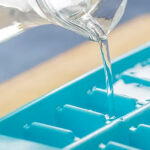Hot Water: The Silent Killer for Your Esophagus and Stomach
Drinking warm water is a healthy habit, but consuming water that is too hot (above 65°C) can pose a hidden danger to your health. It is associated with an increased risk of esophageal and stomach cancer.
According to the World Health Organization (WHO), regularly drinking water, tea, or soup at high temperatures can damage the lining of your esophagus. Prolonged exposure to hot liquids can lead to chronic inflammation and abnormal cell regeneration, creating a conducive environment for cancerous cells to develop.
It is quite common for people to enjoy their tea piping hot or sip boiling water first thing in the morning. While it may feel comforting, this habit can have detrimental effects over time. To protect your health, it is advisable to consume beverages at temperatures around 50°C or lower, with the ideal range being 38-40°C.

Sugary Drinks: Fueling the Growth of Cancer Cells
Sugary drinks, especially carbonated soft drinks, are a popular choice for many, especially during hot weather. However, these beverages have been linked to an increased risk of kidney damage and cancer when consumed regularly.
Here’s why sugary drinks, including those with carbonation, are potentially harmful:
They contain extremely high levels of sugar, often reaching 30-40g per small can.
Artificial colors, flavors, and preservatives are common ingredients that can disrupt your metabolism.
CO₂ and caffeine contribute to inflammation and place additional stress on the liver and pancreas.
Research indicates that individuals who consume large quantities of sugary drinks are more likely to develop cancer of the pancreas, liver, esophagus, and colon. Moreover, these drinks increase the risk of obesity and diabetes, which further exacerbates health issues.

Bottled Fruit Juices: Sweet but Sneakily Harmful
While fresh fruit juices are nutritious, the same cannot be said for their bottled counterparts. These drinks can be detrimental to your health if consumed frequently due to the following reasons:
They often contain refined sugar or fructose syrup, which can overload your liver and pancreas.
The juicing process removes most of the beneficial fiber, unlike consuming whole fruits.
To extend shelf life, additional preservatives, colors, and flavors are usually added.
When you drink bottled fruit juice, the sugar is rapidly absorbed into your bloodstream, leading to spikes in blood glucose and insulin levels. This creates an ideal environment for cancer cells to thrive, and it also stresses your kidneys and liver.
The recommended alternative is to opt for freshly squeezed or blended fruit juices without added sugar. Even better, eat the whole fruit to benefit from the fiber and other nutrients it provides.







































